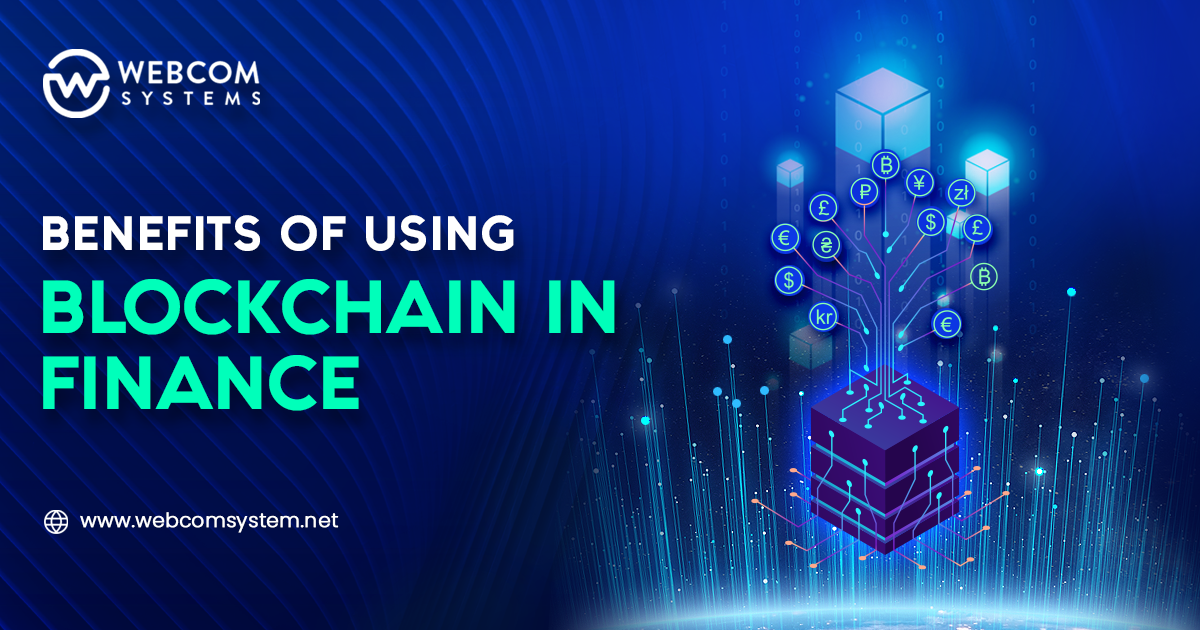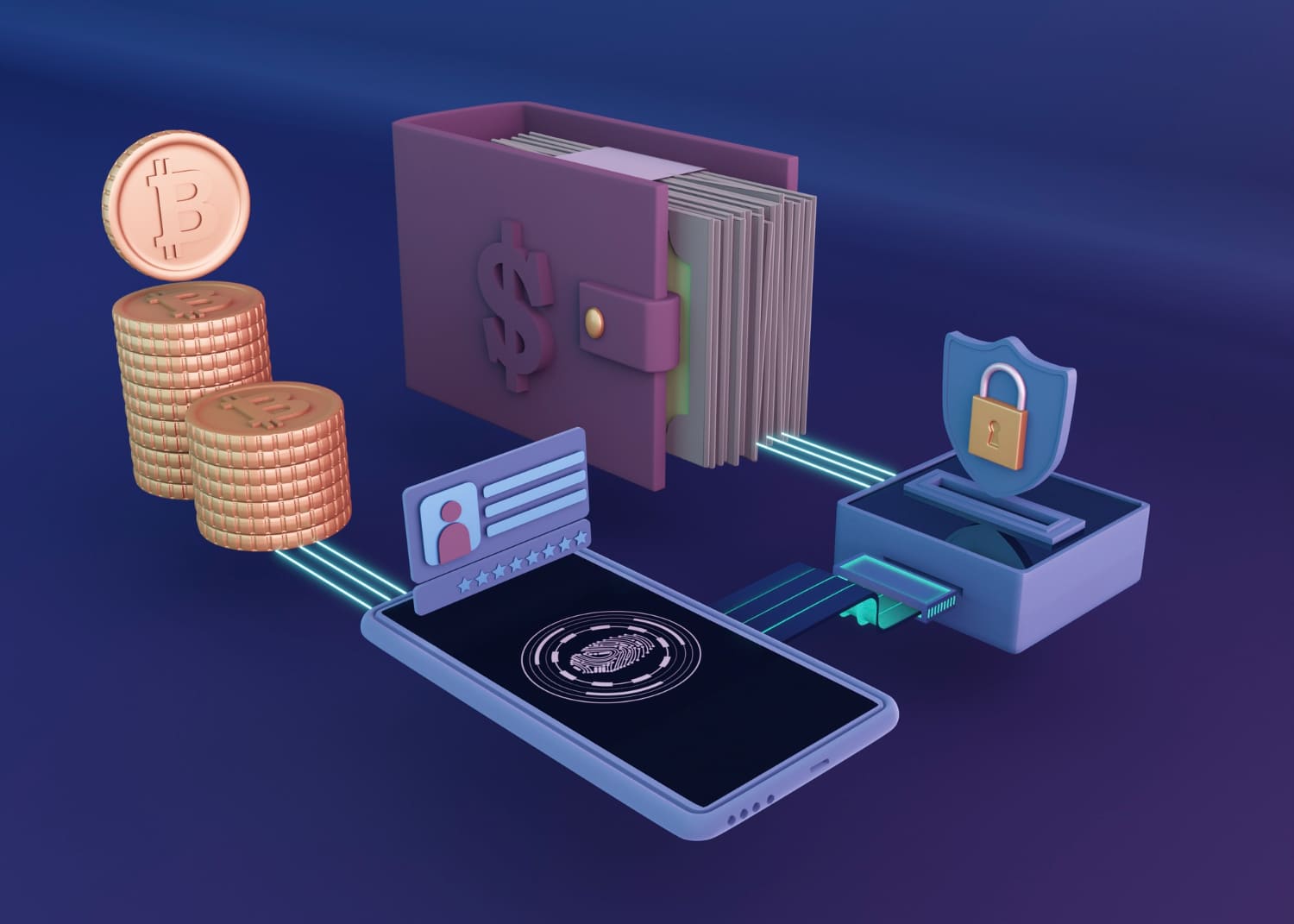Blockchain technology is a decentralized system that records transactions across multiple computers. It distributes the recorded ledgers across the network while maintaining transparency and security. Blockchain technology consists of a chain of blocks. Each block consists of transactions and they are interconnected through cryptographic hashes. And together they form a chronological history of data that cannot be unchanged. Cryptographic hashes are mathematical algorithms that collect data to create a string of characters. Therefore, it heavily depends on the input of data. There are many benefits of using blockchain technology in finance. It has made remittances and other financial services efficient and secure.
Blockchain technology offers several benefits when applied in the field of finance. Some of the key advantages include:
Blockchain Benefits for Finance: A Comprehensive Overview
Transparency and Security
The ledger system of blockchain technology has been designed in a way to creates security and transparency. When transactions are done, it is recorded in the blockchain and these data cannot be deleted or altered. This is because of the unique cryptographic hash of each block. All blocks are connected and any attempt at changing one block will lead to changing the rest. This ensures that the transactional history remains unchanged. When transactions remain traceable and visible, it increases transparency. Having a transparent ledger system reduces the possibility of fraud and manipulation. It creates security and trust in users as well. Each block consists of the hash of the previous block. This makes it difficult for any invaders to change the transaction records. Blockchain technology reduces the risks of fraud by following a set of protocols. They are known as consensus mechanisms. Proof of Work (PoW) or Proof of Stake (PoS) are such protocols that enhance the transparency and security of the system.
Efficiency and Cost Savings
Traditional transaction methods consisted of many intermediaries such as banks, clearing houses, and payment processors. However, blockchain has introduced a direct system where you do not have to go through various intermediaries to get a transaction done. This has sped up the entire process. It saves time by providing a real-time transaction process. Blockchain has also reduced the need for manual work and paperwork. Therefore, the operational costs of blockchains have been reduced. The intermediary costs are also eliminated in the blockchain system, leading to fewer costs.
Financial Flexibility and Accessibility
Blockchain technology allows you to transact directly with one another, without the need for intermediaries like banks. This is an advantage for those who do not have access to traditional banking services. M-Pesa in Kenya and G-Cash in the Philippines are such projects that use blockchain technology to provide financial facilities. They are provided in the form of mobile-based wallets. The rise of cryptocurrencies in these regions is also another sign of the effectiveness of blockchain technology.
Smart Contracts and Automation
Smart contracts are a form of computer programs that automatically implement the terms of a contract when specific terms are met. Smart contracts are powered by blockchain technology. This eliminates the need for intermediary services. The transactions are automatically transferred to the required individual when the terms of a smart contract are met. Smart contracts can be used when lending money, insuring, and in supply chain finance. It can also be applied in real estate transactions to improve efficiency. Smart contracts ensure compliance with terms and conditions when transacting. It also creates reports automatically eliminating the need for manual work.
Enhanced Data Management and Privacy
Blockchain technology ensures the security of data by providing access only to authorized participants. Therefore, the system has control over who can view and add data to the ledger. A blockchain system proves to be the best solution for conducting sensitive business contracts and negotiations. Blockchain technology complies with General Data Protection Regulation (GDPR) principles. The inability to alter or delete data in blockchains, providing access to authorized individuals, and storing only the required information are principles it follows under GDPR.
Future of Blockchain technology and its Challenges
The financial sector has drastically changed with the invention of Blockchain technology. There are many trends in the financial sector such as Decentralized Finance (DeFi) due to blockchains. Central Bank Digital Currencies (CBDCs) are another trend followed by central banks in order to create a digital version of the national currencies in the blockchain. NFTs (Non-Fungible Tokens) have also become popular with the exchange of digital products such as art, gaming, and collectables. Blockchain technology faces many challenges as well. Blockchains are continuously growing and this has created problems regarding its scalability. The high amount of energy consumption is also one of the major challenges that comes with the use of blockchain technology. The regulatory framework regarding privacy and security is another challenging aspect of this system.
Addressing these challenges is important to explore the full potential of blockchain systems. There is much ongoing research regarding this topic and we expect to see a solution for these challenges of blockchains.
The Bottom Line
Blockchain technology has opened doors for many possibilities in the finance sector. It has created efficiency, security, and accessibility of financial services across borders. Blockchain technology will continue to grow and it brings many benefits and challenges with it. Transparency and security, efficiency and cost savings, financial flexibility and availability, smart contracts, and enhanced privacy and data management are benefits we can obtain through the use of blockchain technology. Blockchain technology has changed the way the settlement and clearing processes are performed in the modern age. It has facilitated cryptocurrencies such as Bitcoin and various businesses ranging from food to pharmaceutical sectors.
Therefore, blockchain technology can be considered as the new era for conducting finance in a fast and efficient method across borders. Webcom Systems is a valuable partner if you are looking to use blockchain technology to improve your operations or services. We are a leading provider of blockchain-based solutions for the finance sector. We provide expert guidance and advice on implementing custom blockchain solutions to businesses to meet their specific needs.
Recommended Read: How Can Blockchain Technology be Used to Improve Cybersecurity?






